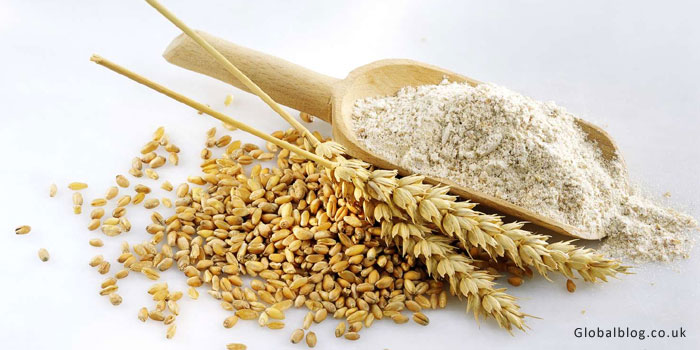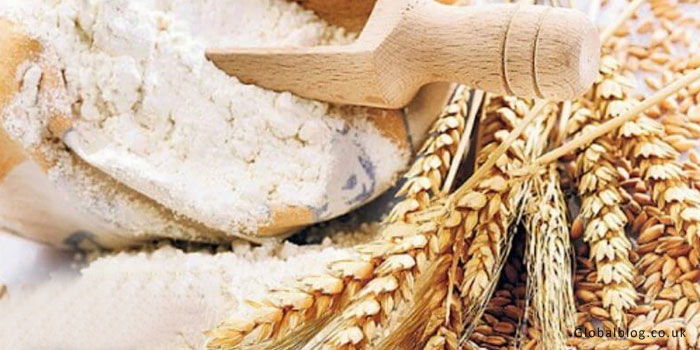Introduction to Organic Flour
When it comes to baking and cooking, the type of flour you choose can make a world of difference. Among the myriad options available, organic flour stands out as a healthy alternative that not only enhances your recipes but also supports your well-being. As more people become aware of the benefits associated with organic ingredients, it’s time to dive into what makes original flour so special.
Unlike its conventional counterpart, organic flour is made from grains grown without synthetic pesticides or fertilizers. This means cleaner products for you and reduced environmental impact. The journey towards healthier eating starts here—let’s explore why making the switch to organic flour could be one of the best decisions for your health!
The Difference Between Organic and Conventional Flour
When it comes to flour, the terms “organic” and “conventional” highlight significant differences in production methods. Organic flour is made from grains grown without synthetic pesticides or fertilizers. This means cleaner crops that rely on natural processes.
Conventional flour, on the other hand, often involves chemical treatments. These can include herbicides and fungicides during growth. Many consumers prefer organic for its purity and sustainability.
Organic farming practices also promote biodiversity. They support healthier soil ecosystems compared to conventional methods that may deplete nutrients over time.
Additionally, organic flour typically undergoes less processing, preserving more of the grain’s natural properties. These results in higher nutritional quality in every scoop you use for baking or cooking.
Choosing between these two types of flour isn’t just about taste; it’s also a decision rooted in health and environmental impact.
Nutritional Benefits of Organic Flour
Organic flour stands out for its enhanced nutritional profile. Unlike conventional options, it is made from grains grown without synthetic pesticides or fertilizers. This means you’re opting for a cleaner product.
It often retains more nutrients due to minimal processing. Whole grain organic flour contains fiber, vitamins, and minerals that are beneficial for digestive health.
Additionally, the presence of essential fatty acids can support heart health while regulating cholesterol levels. Antioxidants found in organic grains may also help combat free radicals in the body.
Choosing organic flour can lead to better nutrient absorption as well. The lack of chemical residues allows your body to utilize these natural nutrients efficiently without interference.
These factors contribute not only to healthier meals but also promote overall well-being when incorporated into your diet regularly.
Health Benefits of Eating Organic Flour
Organic flour offers a range of health benefits that can enhance your overall well-being. First and foremost, it is free from synthetic pesticides and fertilizers. This means fewer chemicals entering your body, which can lead to improved long-term health.
Additionally, flour retains more nutrients than its conventional counterpart. It often contains higher levels of vitamins and minerals like magnesium and B vitamins, essential for energy production and metabolic function.
People who switch to organic and fresh flour frequently report better digestion as well. The lack of additives can make it gentler on the stomach.
Moreover, many find that organic options are less processed, preserving the natural flavors in baked goods. This not only improves taste but also contributes to a more satisfying eating experience.
Choosing organic flour supports sustainable farming practices too. This helps create healthier ecosystems while providing you with quality ingredients for your meals.

Common Misconceptions about Organic Flour
Many people believe that organic flour is just a marketing gimmick. They think it’s no different from conventional flour, but this isn’t true. Original flour is made from wheat grown without synthetic pesticides or fertilizers.
Another misconception is that organic and fresh flour lacks flavor. In reality, many bakers find their taste to be richer and more complex than regular flour due to the absence of chemical additives.
Some assume that all organic products are gluten-free; however, this isn’t the case for organic flours derived from wheat. Those with gluten sensitivities need to check labels carefully.
There’s a belief that organic flour spoils faster than conventional options. While it may have a shorter shelf life once opened, proper storage can help maintain its freshness longer than you might expect.
How to Include Organic Flour into Your Diet
Incorporating organic flour into your diet can be both easy and delicious. Start by substituting it for all-purpose flour in your favorite recipes. You might find that baked goods taste even better with the richer flavors of organic options.
Experiment with pancakes or waffles made from organic and original flour for a wholesome breakfast treat. Try adding it to smoothies as a thickening agent, boosting nutrition without compromising texture.
Consider making homemade pasta using organic flour; it’s simpler than you think and yields amazing results. For those looking to embrace gluten-free options, there are also various organic alternative flours like almond or coconut flour available.
Baking bread? Organic whole wheat flour is an excellent choice that enhances both taste and health benefits. Don’t shy away from savory dishes either; use it as a coating for meats or vegetables before frying or baking, adding flavor along the way.
Conclusion: Making the Switch to Organic and Fresh Flour for a Healthier You
Making the switch to organic flour is a simple yet impactful change you can incorporate into your daily life. By choosing organic, you are not only supporting sustainable farming practices but also nourishing your body with healthier ingredients. The absence of harmful pesticides and chemicals in organic flour means you’re consuming a product that’s purer and more aligned with natural nutrition.
Consider how every meal contributes to your wellness journey. Choosing organic products reflects a commitment not just to yourself but also to the environment around you. It’s about making informed choices that resonate with our values for both personal health and planet care.
